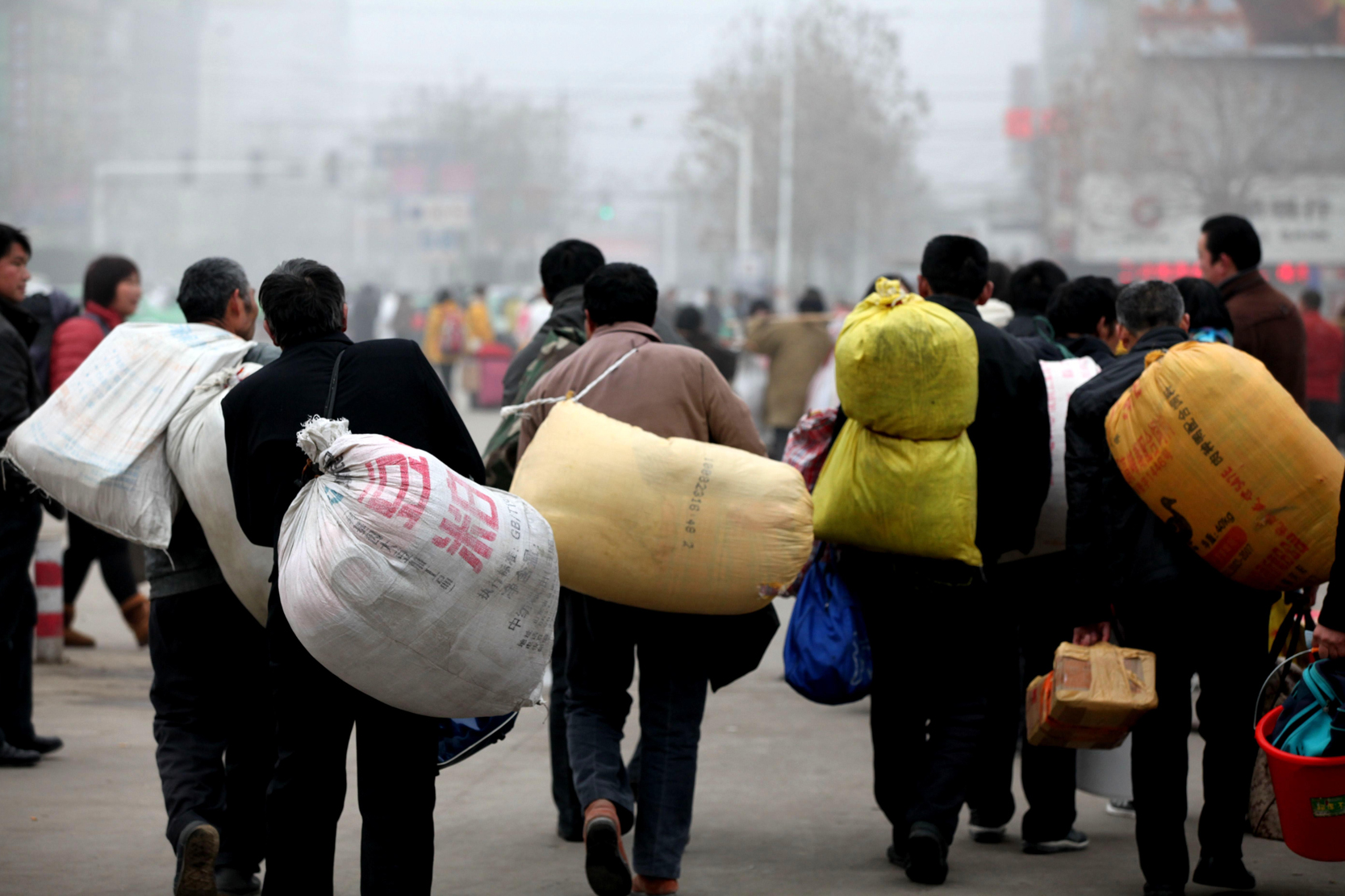New opportunities for rural sociology studies in China

Migrant workers move to cities in search of a better living. Migration is a distinguishing trait of the current rural society and offers new opportunities for rural sociology studies. (PHOTO: CFP)
China’s rural areas have undergone rapid development amid social transformation and industrialization. Studying rural issues has become a significant task in rural sociology. Many scholars believe rural sociologists should conduct wide and in-depth investigations into the rural society and propose new theories for solving problems.
China is a large agricultural country and farmers constitute a key group in society, said Lu Yilong, deputy director of the Center for Studies of Sociological Theory and Method at Renmin University of China in Beijing. Lu added that main differences between sociology in China and the West are based on both sides’ different realities and development models. Development of sociology in China has been closely linked with the rural society since its introduction to the country.
Rural sociology studies have always presented characteristics of localization. Yang Min, a professor from the School of Social Development at Central University of Finance and Economics in Beijing, said that Chinese rural sociologists always adhere to the principle of localization when investigating rural problems.
Xu Yong, director of the Center for Chinese Rural Studies at Central China Normal University in Wuhan, Hubei Province, echoed Yang’s view. Xu said sociology in China holds rural surveys as its basic focus, as demonstrated by the efforts of pioneering scholars including Fei Xiaotong (1910-2005), who conducted in-depth investigations into the rural society. These investigations provided a solid academic foundation for rural sociology studies, said Xu. A series of academic works based on these investigations have been published, including Fei’s Peasant Life in China: A Field Study of Country in the Yangtze Valley and From the Soil: The Foundations of Chinese Society.
Since its reform and opening-up, China’s rural society has undergone rapid development that has provided rich materials for rural sociology studies. Some scholars said that current rural sociology studies have covered all aspects of the rural society, including macro and micro levels.
Yang said that common research subjects include farmers’ occupational structure and rural organization, as well as the classification of rural primary-level organizations and transfer of rural labor.
Xu said rural sociology studies are currently undergoing a development boom. As an independent discipline, many universities have set up courses to cultivate rural sociologists. Meanwhile, research methods have extended to quantitative research, rather than just focusing on case studies.
Despite numerous achievements in rural sociology over recent years, a narrow research focus hinders its development. Lu noted there is excessive empirical research and insufficient theoretical data. “Most research is still focused on being empirical rather than theoretical. More contributions to the development of the theoretical system of rural sociology need to be made,” Lu said.
Regarding agricultural studies, Lu said that sociologists pay too much attention to real requirements and ignore the research paradigm; focus too heavily on discussion of solutions and ignore scientific understanding of problems; and emphasize application over theoretical research.
“There are too few original theoretical works,” said Xu. “Academic circles still study China’s rural society based on Western sociological theories when we should in fact put forward the Chinese discourse mode and academic paradigm based on in-depth social investigations.”
Development of China’s rural society has continuously advanced over time. Lu said that migration is a typical trait of the current rural society, saying it refers to “the transfer between urban and rural areas as well as between different occupations and social classes.”
The current situation provides new opportunities for the development of rural sociology. Yang said that rural sociology studies will face new phenomena and problems in the process of urbanization. In the process of rethinking and exploration, Yang urged abandoning Western theories in favor of constructing the Chinese narrative style and discourse system.
Regarding the future development of rural sociology, Lu suggested extending the research paradigm. “Currently, villages are in flux due to migration. We need to fully understand the current rural society and innovate the research paradigm,” added Lu.
“It is especially vital to conduct studies that follow the development of research subjects,” said Xu. Compared to the traditional rural society, the current one is constantly changing and providing new opportunities for rural sociology studies, Xu added.
“It is necessary to strengthen predictive efforts, rather than studying and explaining the past and present situation,” said Xu.
